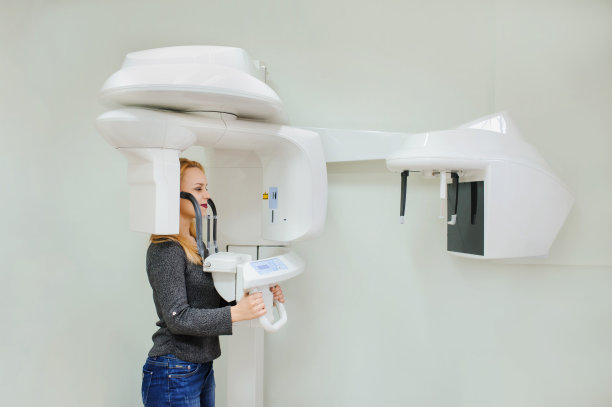Summary: Dental implants are revolutionizing the way we approach tooth loss, providing a durable and functional solution to retain the integrity of the smile and enhance oral health. In this article, we explore the myriad benefits of dental implant treatments, addressing how they restore confidence and improve quality of life. Delving deeper, we examine the latest innovations in this field, providing insights into cutting-edge technologies and techniques that are reshaping the dental landscape. By focusing on aspects such as longevity, natural appearance, and advancements in implantation techniques, we present a comprehensive overview for those seeking this transformative dental solution. These insights not only affirm the advantages of dental implants but also highlight their importance in modern dentistry.
1. Longevity and Durability of Implants

One of the most compelling benefits of dental implants is their remarkable longevity. Unlike traditional dental bridges or dentures, implants are designed to last for many years, often decades, with proper care. This durability makes them a cost-effective solution, reducing the need for frequent replacements and adjustments that accompany other dental restorations.
Dental implants are typically made from titanium, a material that is highly resistant to corrosion and integrates well with bone. This osseointegration process ensures that the implant is firmly anchored in the jawbone, providing a stable base for artificial teeth. As a result, patients can enjoy normal eating and speaking without fear of their prosthetics becoming loose or uncomfortable.
Moreover, the longevity of dental implants contributes significantly to maintaining jaw health. When teeth are lost, the jawbone can begin to deteriorate over time due to lack of stimulation. Implants help to prevent this bone loss by mimicking the natural tooth root, thereby promoting healthy bone density and structure. In this way, they not only restore function but also preserve the facial contour.
2. Natural Appearance and Functionality
A key advantage of dental implants is their ability to resemble natural teeth closely. Advanced technology has enabled the creation of highly aesthetic restorations that match the color, shape, and size of the surrounding teeth. This seamless integration allows patients to regain their confidence while smiling and engaging socially.
Functionally, implants perform just like natural teeth. Patients can enjoy their favorite foods without restriction, as implants provide the same bite force and stability as regular teeth. This restoration of normal function improves not only dietary choices but also overall health, as a broader variety of foods can be consumed, contributing to better nutrition.
Furthermore, the integration of implants into a patient’s oral structure allows for easier maintenance. Unlike traditional denture care, which often involves adhesives and special cleaning solutions, dental implants can be maintained through regular brushing and flossing. This ease of care encourages good oral hygiene practices, further enhancing overall oral health.
3. Innovations in Implant Technology
Recent advancements in dental implant technology have significantly improved the treatment experience and outcomes for patients. Innovations like 3D imaging and computer-aided design (CAD) allow for precise planning and placement of dental implants, minimizing the margin of error during procedures.
These technological enhancements also facilitate the development of guided implant surgery techniques, which enable dentists to place implants with exceptional accuracy. This methodology not only reduces recovery time and discomfort for patients but also enhances the success rate of the procedure by ensuring optimal implant positioning.
In addition, the introduction of mini dental implants offers a less invasive option for patients with limited bone density or structural challenges. These smaller implants are particularly beneficial for retaining dentures, providing stability without the need for extensive bone grafting. The diversity in implant options reflects ongoing research and innovation in dental technology, making treatment accessible to a wider range of individuals.
4. Health Benefits of Dental Implants
Beyond aesthetic considerations, dental implants bring numerous health benefits. One of the most significant advantages is their role in preventing jawbone atrophy. When teeth are missing, the jaw can begin to recess, leading to facial sagging and other dental complications. Dental implants help to maintain the structure of the jaw and mitigate these issues effectively.
Furthermore, having a complete set of functional teeth lowers the risk of related health problems such as gum disease and tooth decay. Patients with dental implants are less likely to experience additional dental issues as implants promote healthier oral hygiene practices compared to traditional dentures.
Finally, the psychological benefits of restored dental aesthetics cannot be understated. Individuals with missing teeth often experience self-esteem issues, avoiding social situations due to embarrassment. By restoring their smile, dental implants significantly enhance the quality of life, leading to improved mental well-being and social engagement.
Summary:
In conclusion, dental implants represent a revolutionary approach to tooth restoration, offering benefits that go far beyond aesthetics. Their longevity, natural appearance, and advancements in technology collectively enhance dental care, promoting both oral and overall health. As innovations continue to shape this field, dental implants become increasingly accessible and beneficial.
This article is compiled by Vickong Dental and the content is for reference only.
Vickong Dental
Vickong Dental is a large medical group established in Hong Kong in 2008 by professors from well-known medical universities in Guangdong and Hong Kong, as well as medical doctors from key national '985' universities (including Master's supervisors and senior professors). The chain of branches brings together expert dentists with PhDs and Master's degrees from Hong Kong and Mainland China, committed to providing high-quality dental treatment.
"Vickong Dental Practices the University Motto of 'Healing and Serving Society,' with a Stable Operation for Sixteen Years. It Has Been honored with Hong Kong Enterprise Leaders's Choice,' and is a Global Trusted Implant Center for the Nobel Implant System. Recommended by Hong Kong Metro Broadcast and Guangdong Television, it Serves Customers from Over Thirty Countries and Regions, Gaining the Trust and Favor of Citizens from the Guangdong-Hong Kong-Macau Greater Bay Area and Surrounding Cities.

Thousands of customers' unanimous praise
The most recognized and highly recommended dental service by customers in the Guangdong-Hong Kong-Macau Greater Bay Area
We Ensure You Receive Detailed Care and Attention Here
Hong Kong standards, Shenzhen prices, Your Trusted English-speaking dentists

Vickong Dental Medical-Grade Instrument Disinfection Process
Vickong Dental Medical-Grade Instrument Disinfection Process

Vickong Dental Chain: A Warm and Comfortable Environment for Treatment






Appointment Hours

Q&A
Why choose Vickong Dental?
Vickong Dental practices the university motto 「Medicine to Benefit Society」, with each branch bringing together highly qualified dentists with doctoral and master’s degrees from Hong Kong and the Mainland, and has maintained seventeen years of steady operation。Recipient of 「2024 Hong Kong Enterprise Leaders Brand」, 「2025 Hong Kong Enterprise Leaders Brand」, a Nobel Biocare Global Trusted Implant Center, and a brand recommended by Metro Radio Hong Kong and Guangdong TV。
To date, we have served customers from more than thirty countries and regions,earning exceptionally high word-of-mouth recognition and trusted recommendations from residents across the Guangdong-Hong Kong-Macao Greater Bay Area and surrounding cities
We have eight major branches in Zhuhai、Shenzhen,and a consultation and service assurance center in Hong Kong,so you can book a free consultation at any time for any questions,which is very reassuring.
If I do not accept the quotation after the CT scan, will I be charged??
No! As long as the actual treatment has not started, you will not be charged any fees.
Will there be any additional charges during the treatment process?
No, there won’t be any additional charges. Before treatment begins, we will clearly explain the treatment plan and its corresponding fees. Only after the patient agrees and signs the consent form will we proceed with the dental service.
Can I pay in Hong Kong dollars?
Yes. Vickong Dental accepts payment in Hong Kong dollars. The amount will be converted based on the exchange rate of the day, and the applicable rate will be clearly communicated to you in advance.
Can I reschedule my appointment at any time?
Yes. Please contact us via **WeChat** or **WhatsApp** as early as possible, providing your original appointment time and details, along with your preferred new date and time slot for rescheduling.













